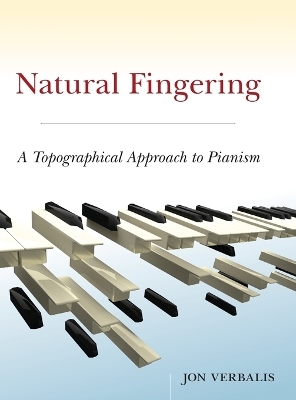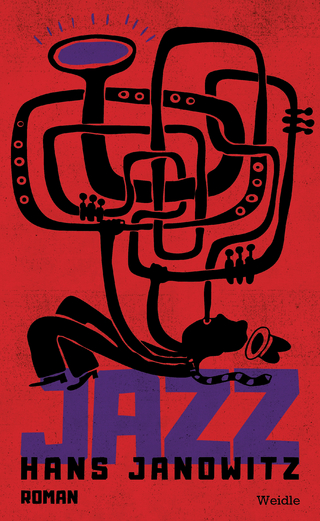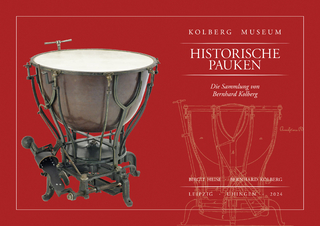
Natural Fingering
Oxford University Press Inc (Verlag)
978-0-19-518184-5 (ISBN)
Though incomplete at the time of his death in 1849, Chopin's Projet de méthode was nonetheless revolutionary in many respects. But with his Fundamental Pattern, Chopin announced the recognition, if not discovery, of the keyboard's extraordinary topographical symmetry and postulated a core formulation for a new "pianistic" pedagogy. More than a hundred years later the now-legendary Heinrich Neuhaus would passionately plead for this pedagogy and a pianism rooted in it.
Natural Fingering explores this remarkable symmetry, significantly as it sheds light on fingering matters for the now vast catalogue of repertoire. It also examines the revolutionary impact of equal temperament on compositional key choice as well as the liberating influence of Charles Eschmann-Dumur's unique discoveries regarding symmetrical inversion.
Principles for a topographically-based fingering strategy are developed that reflect a surprising compatibility of this fixed symmetrical organization with the most efficient biokinetic capabilities of the pianist's playing mechanism. Previously neglected or overlooked technical aspects of pianism are addressed as they relate to movement in keyboard space generally as well as fingering specifically.
Symmetrical fingerings for all the fundamental forms are presented in innovative, instructive format. The reader will also find an unusually extensive, in-depth discussion of double note challenges. Answering Neuhaus's call for the reappraisal of a certain pedagogical status quo, several chapters are devoted to the relevant implications of Chopin's Fundamental Pattern. The author also advances guidelines for a progressive implementation of natural fingering principles from the very start, as well as "retooling" for teachers and students alike. Of special note are the cross-hand major and minor scales for the earliest stages, in which the necessity of thumb under/hand over pivoting actions is eliminated.
Natural Fingering is the first comprehensive discussion of fingering solutions for pianists since Hummel's monumental treatise of 1828. The book is complemented by a companion website where readers can access excerpts from the repertoire with fingering solutions, read extended discussions, and download comprehensive lists of scales with appropriate fingerings.
Jon Verbalis has performed extensively in recital, as orchestral soloist as well as chamber music/collaborative pianist and teaches piano in New York City, where he resides. His students have gone on to study at the leading conservatories and music schools, many garnering prestigious awards nationally and internationally and now teaching, performing, composing and otherwise contributing to the profession. He is also active as a clinician.
ABOUT THE COMPANION WEBSITE; INTRODUCTION; PART I FUNDAMENTAL FORMS AS FOUNDATION; PART II THE DOUBLE NOTE CHALLENGE; PART III TOPOGRAPHY, STRATEGY AND SYMMETRY; PART IV THE TOPOGRAPHICAL ADVANTAGE: EXPLORATIONS IN KEYBOARD SPACE; FROM THE BEGINNING; EARLY REPERTOIRE; CHOPIN'S PATTERN AS FUNDAMENTAL TOOL; RETOOLING AND REPERTOIRE; EPILOGUE; ENDNOTES; GLOSSARY; BIBLIOGRAPHY; SUBJECT INDEX; AVAILABLE ONLINE AT WWW.OUP.COM/US/NATURALFINGERING; EXCERPTS FROM THE REPERTOIRE FOR CHAPTERS 1-8, 11 AND 14; APPENDIX 1 SINGLE NOTE DIATONIC SCALES: THE MAJOR FORMS; APPENDIX 2 SINGLE NOTE DIATONIC SCALES: THE MINOR FORMS; APPENDIX 3 THE ARPEGGIOS; APPENDIX 4 HISTORICAL FINGERINGS FOR THE CHROMATIC SCALE; APPENDIX 5 DIATONIC DOUBLE THIRD FINGERINGS: AN EVOLUTION; APPENDIX 6 THE CHROMATIC SCALE IN DOUBLE NOTES; APPENDIX 7 DOUBLE THIRD DIATONIC SCALES: THE MAJOR AND MINOR FORMS; APPENDIX 8 DOUBLE SIXTH DIATONIC SCALES: THE MAJOR AND MINOR FORMS; APPENDIX 9 E. ROBERT SCHMITZ: SIX FUNDAMENTALS OF TRAINING; APPENDIX 10 TECHNICAL ASPECTS OF A NATURAL PIANISM
| Erscheint lt. Verlag | 31.5.2012 |
|---|---|
| Zusatzinfo | 121 music examples |
| Verlagsort | New York |
| Sprache | englisch |
| Maße | 282 x 221 mm |
| Gewicht | 896 g |
| Themenwelt | Kunst / Musik / Theater ► Musik ► Instrumentenkunde |
| ISBN-10 | 0-19-518184-0 / 0195181840 |
| ISBN-13 | 978-0-19-518184-5 / 9780195181845 |
| Zustand | Neuware |
| Haben Sie eine Frage zum Produkt? |
aus dem Bereich


